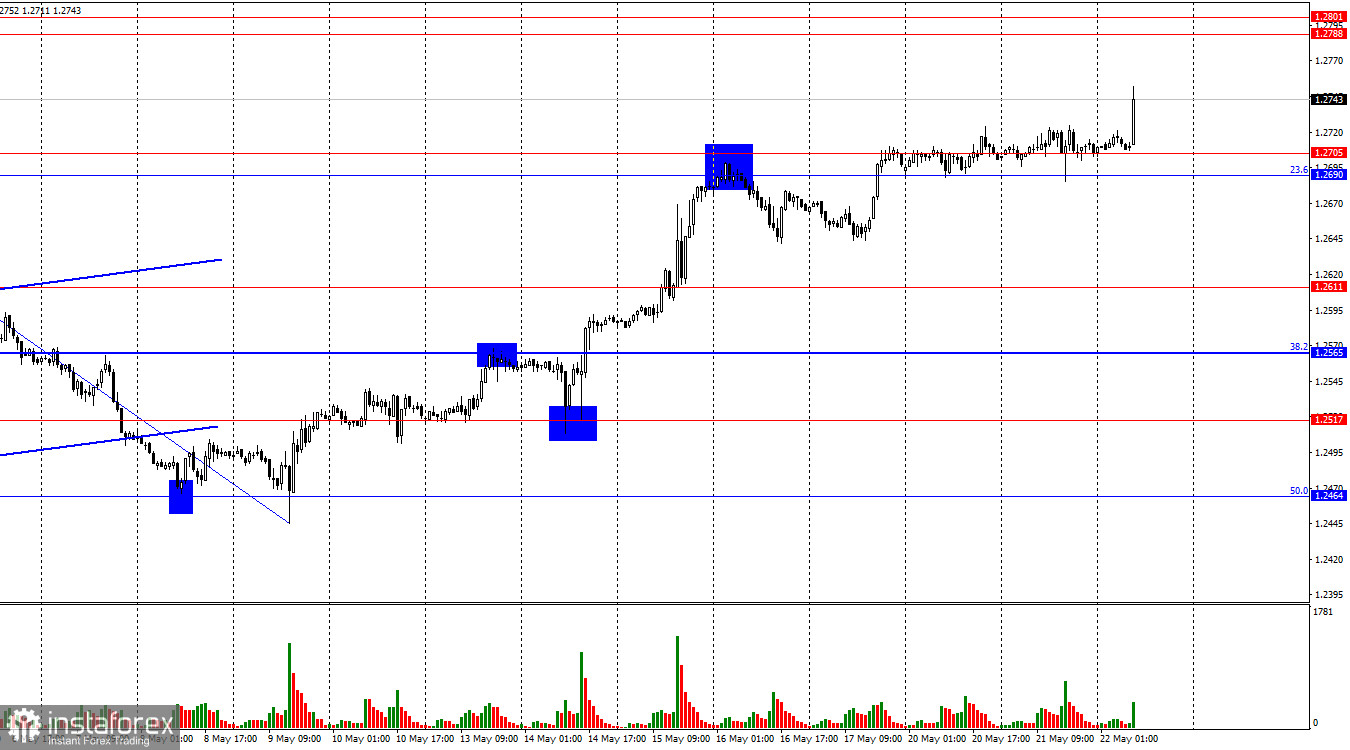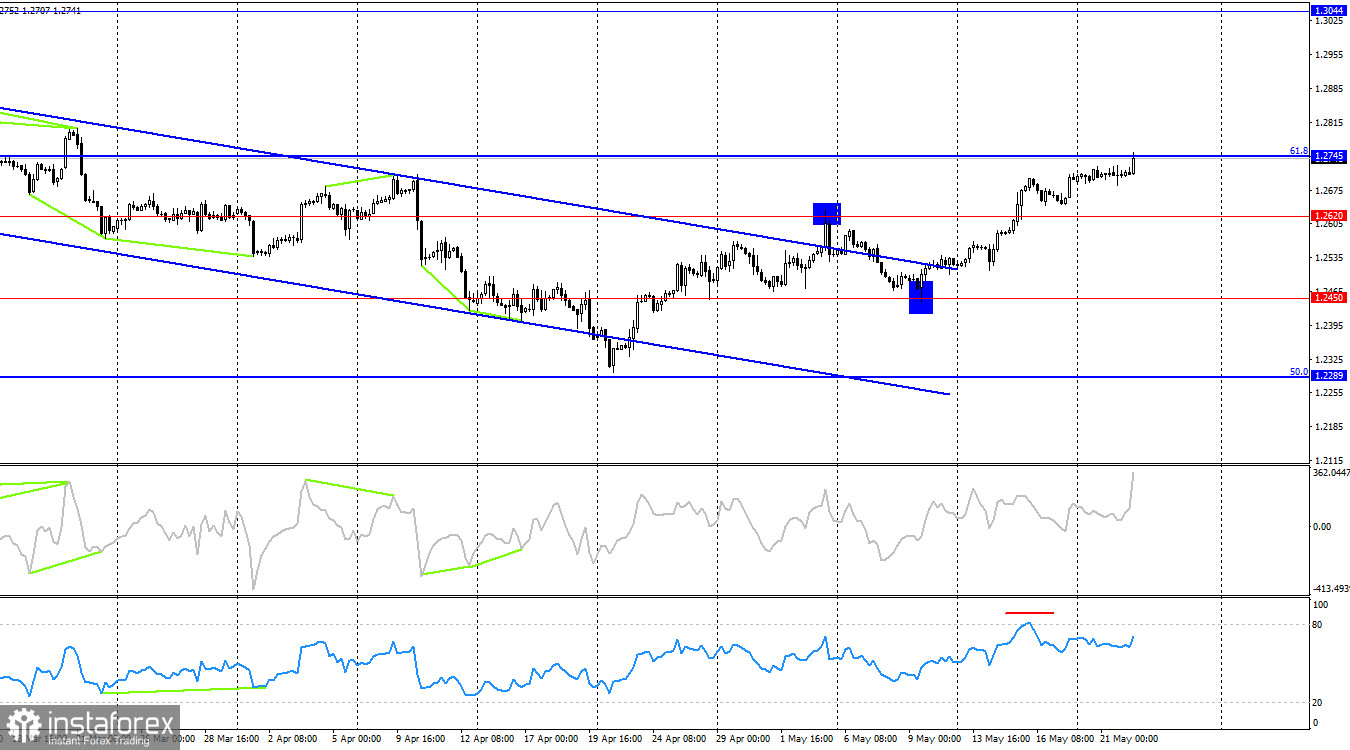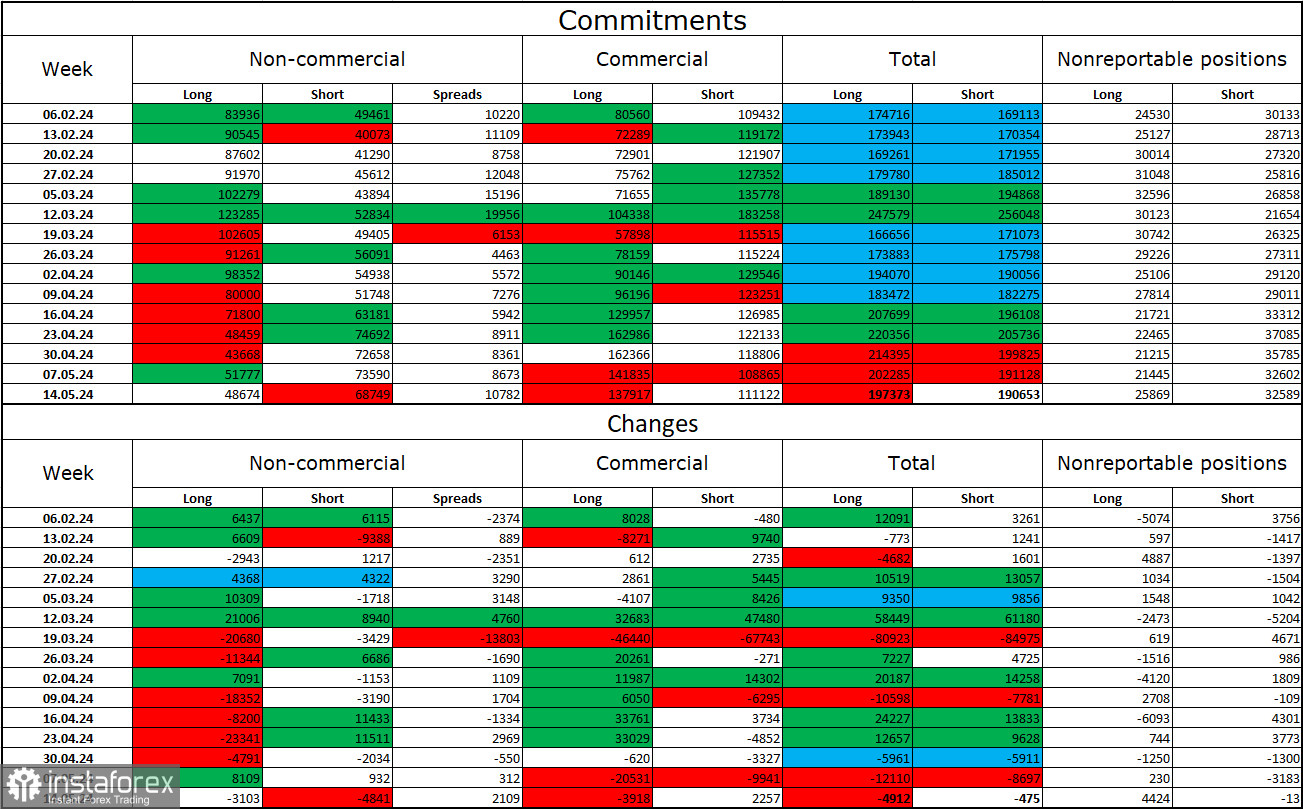On the hourly chart, the GBP/USD pair traded horizontally all day on Tuesday, but on Wednesday morning, it sharply resumed its upward movement towards the resistance zone of 1.2788–1.2801. A rebound from this zone will favor the US dollar and lead to some decline towards the support zone of 1.2690–1.2705. Consolidation of the pair above the 1.2788–1.2801 zone will increase the likelihood of further growth towards the next corrective level of 0.0%–1.2891.

The wave situation remains unchanged. The last downward wave ended on May 9 without breaking the low of the previous wave, while the new upward wave broke the peak from May 3. Thus, the trend for the GBP/USD pair has changed to "bullish" and remains so. The bullish trend may be short-lived, as the current informational background does not seem strong enough for the pound to see several more upward waves. Nevertheless, the first sign of the end of the bullish trend will appear only when a new downward wave manages to break the low of the previous wave from May 9. The pound must drop by 320–340 points from the current price.
The pound continues to rise almost without interruptions. Even today, when the report on British inflation was released, the bulls continued to attack. Let me explain what is wrong with the pound. Inflation in the UK slowed from 3.2% to 2.3% year-on-year. This means it is now lower than in the Eurozone, which is already planning to lower interest rates in June. Thus, the Bank of England may also begin to ease monetary policy in June. This implies that the pound should fall, not rise. However, as bears are absent from the market, we continue to observe the growth of the British currency, regardless of the economic statistics. Core inflation also slowed weaker than traders expected, but this is not a reason to buy the pound, as there is still a significant slowdown.

On the 4-hour chart, the pair rose to the correction level of 1.2745. A rebound from this level may cool the bulls, who have been gaining strong momentum lately, and allow the pair to start falling towards the 1.2620 level. Consolidation above this level will give even more confidence to the bull traders, who may continue to attack with the goal of reaching the 1.3044 level. No impending divergences were observed in any indicator today.
Commitments of Traders (COT) Report:

The sentiment of the "Non-commercial" category of traders became less "bearish" over the last reporting week. The number of Long contracts held by speculators decreased by 3,103 units, while the number of Short contracts decreased by 4,841. The overall sentiment of large players has shifted, and now the bears are dictating their terms in the market. The gap between the number of Long and Short contracts is 20,000: 48,000 against 68,000.
The prospects for a decline in the pound remain. Over the past three months, the number of Long contracts has decreased from 83,000 to 48,000, while the number of Short contracts has increased from 49,000 to 68,000. Over time, the bulls will continue to offload Buy positions or increase Sell positions, as all possible factors for buying the British pound have already been exhausted. The bears have demonstrated their weakness and complete unwillingness to go on the offensive in recent months, but I still expect the pound to start declining.
News Calendar for the USA and UK:
- UK – Consumer Price Index (06:00 UTC).
- USA – New Home Sales (14:00 UTC).
- USA – FOMC Minutes (18:00 UTC).
On Wednesday, the economic events calendar includes three entries, the most important of which has already become available to traders. The informational background will have a weak impact on market sentiment for the rest of the day.
Forecast for GBP/USD and Trading Tips:
Selling the pound is possible in the event of a rebound from the resistance zone on the hourly chart of 1.2788–1.2801, with targets at 1.2690–1.2705. Buying opportunities could have been considered upon closing above the 1.2705 level, with targets at 1.2788–1.2801. These trades can now be kept open.






















